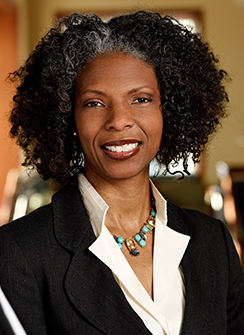By: Kelli DePriest, Kamila Alexander, and Janiece Taylor
If you ask a fish about water, the fish will say, “Water? What is water?” The fish lives in water for its entire life and never thinks about it.
Social determinants of health, the conditions in which people are born, live, learn, work, play, worship, and age, are society’s “water.” They are so invisible most of us do not realize the conditions, or “water,” that we live in. However, the COVID-19 pandemic reveals tumultuous waters— significant inequities that leave people with disabilities, marginalized people of color, and people with low incomes vulnerable to poor health, diminished quality of life, and even death.
Nursing’s shared imperative is to achieve health equity, which means we must address social determinants of health. To that end, we must take action downstream, midstream, and upstream.
- Downstream: Provide high quality clinical care
- Midstream: Address individual social needs
- Upstream: Improve community conditions through policy
Here’s how we can do that.
Downstream: Expand the role of nurses at all levels of care
Nurses provide up to 80 percent of hands on medical care worldwide, are on the front lines in the fight against COVID-19, but they are often not practicing at the full scope of their education. We need to expand models of care that can improve key quality indicators for patient health. For example, increasing the use of standing orders for appropriate healthcare interventions can enhance efficiencies and innovation. Nurses with knowledge and experience addressing social determinants of health can implement standing orders aligned with much-needed preventive care.
Advanced practice nurses are also essential to the healthcare team and are more likely to practice in areas with high poverty and poor health outcomes. But their practice authority is often limited by state statutes requiring physician supervision. Advanced practice nurses should have no requirement for physician collaboration or oversight to practice. In fact, due to COVID-19, more than half of the 28 states who limit nurse practitioner practice are temporarily suspending or waiving practice agreement requirements. We must ensure that nurses at all levels in clinical, academic, and political settings are well equipped to identify and address social determinants of health to affect health outcomes. We urge all states to grant nurses, including advanced practice nurses, the ability to practice at the fullest extent of their education.
Midstream: Increase the capacity of public health nurses to address individual social needs
Public health nurses protect the health of populations and represent the single largest group of public health practitioners working in U.S. State health departments and local health departments. These nurses respond to epidemics through case identification, contact investigation, and supporting families in quarantine. They are also some of our greatest public health leaders. The work of public health nurses is largely invisible and faces many challenges such as severe cuts in public health funding, replacement of nursing positions with non-nurses, and low salaries. Yet, they are the well-equipped to promote health equity by addressing the social needs of individuals in marginalized communities. Decreases in specialized education opportunities and funding at all governmental levels have limited the public health nursing workforce. Specialty training for public health nurses and increased funding to strengthen our public health infrastructure are imperative mandates now more than ever.
Upstream: Improve community conditions through policy
As nurses, we need to advocate for Health in all Policies. As the most trusted profession, our voices carry weight. We must ensure we have a voice in policy to represent the voiceless and bring policy makers together to support policies that improve health. The response to the COVID-19 pandemic demonstrates intersectoral collaboration in real-time. One state converted vehicle emissions testing sites to drive-through COVID-19 testing sites. Just as states have taken intersectoral approaches to fight against COVID-19, other pervasive factors such as poverty, unemployment, and inequity continue to threaten the health and well-being of individuals.
Because of COVID-19’s unequal burden of death and disease, we see the waters in which we live. And we must implement a “downstream,” “midstream,” and “upstream” approach.
But more than the COVID-19 pandemic and beyond, it is the Year of the Nurse and the Midwife.
Nurses know health inequity is not a new problem. We know we need more nurses, and to be empowered with the tools we need to rise to the challenge.
This blog is a part of the “Dialogues in Health Equity” series by the Health Equity Faculty Interest Group. They are committed to decreasing health disparities experienced by local and global communities by promoting social justice and health equity through nursing practice, research, education, and service.
Dialogues in Health Equity
- Don’t Fall for the Red Herring: Nurse Detectives Discover Mental Illness in Older Adults
- We’re All Ears for Dialogues in Health Equity
ABOUT THE AUTHORS

Kelli DePriest, PhD, RN conducts research with the goal of achieving health equity for children and families living in poverty. Dr. DePriest graduated from the JHSON PhD program and completed a postdoctoral fellowship with Dr. Eric Slade. She is currently a Health Policy and Research Fellow at the Institute for Medicaid Innovation. Follow her on Twitter (@KelliDePriest)

Kamila Alexander, PhD, MPH, RN uses health equity and social justice lenses to research the prevention of sexual health outcome disparities and the complex roles that structural determinants such as intimate partner violence, societal gender expectations, and limited economic opportunities play in the experience of intimate human relationships. Dr. Alexander is the co-leader of the Johns Hopkins School of Nursing Health Equity Faculty Interest Group.

Janiece Taylor, PhD, RN, FAAN, is an assistant professor at the Johns Hopkins School of Nursing, and faculty in the Center for Innovative Care in Aging. She explains. “The aging process, especially when combined with disabilities, is not being researched enough.” Dr. Taylor’s research is focused on developing interventions to improve health outcomes among women and minorities aging with disabilities and chronic pain.
